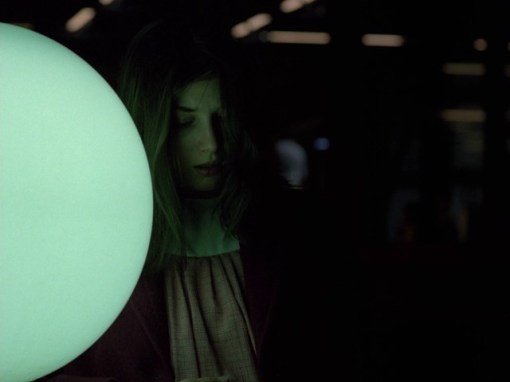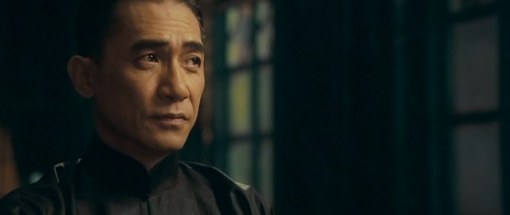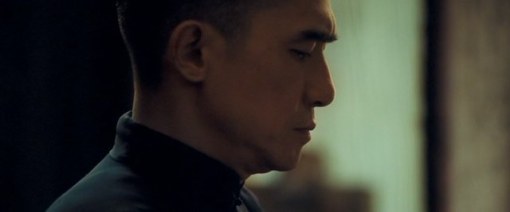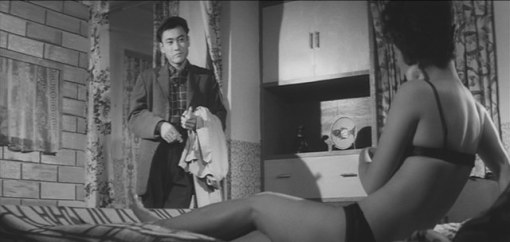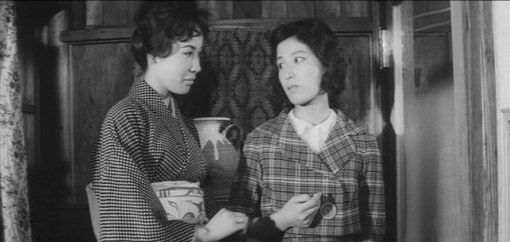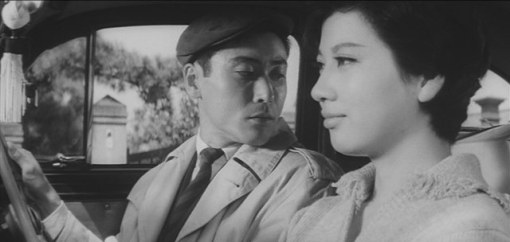Last week, in the middle of praising Godard’s Hail Mary, I made a reference to the disappointment I felt while revisiting Masculin Feminin. To make things short, I find the film, while not particularly painting a flattering portrait of any young person in it, particularly unfair to the women. La Chinoise, which comes only a year later, may offer something of an apology to this depiction. As opposed to the vapid women uninterested in politics in Masculin Feminin, here we have Veronique, an extremely committed radical. The film ends with her “taking the steps” towards a life of violent and revolutionary acts, although the film seems to leave her more confused and hurt than the aforementioned “vapid” women. It would be reductive to limit the conversation on La Chinoise to whether or not Godard is sympathetic to his group of young radicals. Despite the film’s strictly political aesthetic, it may only be interested in observing, not projecting anything itself.
While on a summer break from her studies at Nanterre University, Veronique (Anne Wiazemsky) and her boyfriend, an actor named Guillaume (Jean-Pierre Leaud) stay at a comfortable apartment that was lent to them from the parents of a friend. They’re joined by Yvonne, her boyfriend, Kirilov and a science student by the name of Henri. The five form something of a commune. They spend their days reading political texts, loudly delivering lectures on said texts, and comically re-enacting the acts of imperialism depicted in the news. The group dreams of revolution, and these dreams slowly develop into a reality. Theory isn’t enough, and the group formulates a plan to assassinate Mikhail Sholokhov, a Soviet novelist visiting Paris. Veronique is chosen to commit the crime.
To the apolitical viewer, La Chinoise sounds like a headache. An ideological exercise that would oppose the very thing that made Godard’s earliest work so fresh and exciting. Suggesting this film isn’t dry isn’t the right way to unpack it, but one can’t say that Godard doesn’t give his everything in making the film be as exciting as the revolution is to Veronique and Guillaume. Almost exclusively composed in one apartment, the film seems to be driven by a bunch of contradictions. The apartment is spacious, as it is normally the residence of a bourgeois family, but the compositions are tight. Close-ups seem to be individual portraits painted by Raoul Coutard’s camera, which seems to linger until the film abruptly cuts to something else. In continuing the connection with Masculin Feminin, this is Godard’s first academy ratio full length film since it, and it seems to develop a similar aesthetic. Just like there, we have a film that is (or can be) dry but exciting, open spatially yet closed off tightly by the camera. Such contradictions are confusing and messy, which seems appropriate for the film’s ideological content, which seems to be overwhelmingly present on the surface, but Godard’s own ideas are perhaps masked by his vocal characters.
Unlike Masculin Feminin, La Chinoise is shot in color and it seems nearly impossible to think of the film without red, blue, and yellow all confronting your eyes in an appealing and uniform way. Frames seem to be balanced not by the continuity of actors and their physical preference, but instead by Godard and Coutard’s preference for the image itself. This, of course, echoes Yasujiro Ozu’s ideas about composition. The connection here is frustrating, because at the time, Ozu was relatively unknown and of little interest to the west. Yet, Godard seems to channeling him here. First in his portrait-like close-ups, but also in the decorations of the apartment. Like the protagonists of early Ozu comedies like The Lady and the Beard and I Flunked But…, Godard’s characters also hang photographs of Karl Marx (among others) on their walls. Interestingly, Ozu’s Marx-adorned rooms were decorated with American movie posters and other images of western influence. Godard synthesizes popular culture with ideology in the film’s humorous pop song, “Mao Mao” while Ozu saw both as part of the same force.
While one can get caught up in the words of the group here, it would be a mistake to label Godard’s film as a advertisement for them, or even an endorsement of their behavior. The assassination doesn’t go quite as planned and eventually, the older couple who let Veronique borrow the apartment send their kids to check on the place. It is important that La Chinoise takes place in the summer because it’s conclusion, which does not condemn the group itself, still does leave us with a sense of “now what?” Veronique and Guillaume are bourgeois leftists, but so was Godard himself. As Richard Brody notes in his book, Everything is Cinema, during the shooting of the film, Godard gave Leaud money to eat fancier meals. He had to have his idealistic, revolutionary youth be privileged to poke holes in their ways? The result is, again, a film that does not condone or condemn the group. What purpose can the film serve then? As much as it fascinates me, I struggle to find an answer myself. Maybe it is Godard’s own inward reflection on his own social standing and what that means for his interest in the radical left. The film concludes with Guillaume allowing himself to be humiliated for profit, maybe Godard is doing the same. No, not making a terrible, impersonal film for financial success but instead, one that would make evident his shortcomings as a privileged leftist.
The problem with all of this is that the film then leaves Veronique out to dry. We must presume she returns to her studies, yet she laments in voice over that she lacks the courage to go forth with even more acts of violence. The film gives us a sequence where her increasingly violent intentions are questioned in a level-headed way by her, of course, male professor. His reasonable reply doesn’t change Veronique’s intentions, she goes through with the plan to kill Sholokhov shortly after this conversation. While Godard allows himself (through Guillaume) to absorb criticism and vegetables, Veronique is left completely alone. Godard would make Weekend next, and perhaps give us some answers. Both the man and the woman in that film’s bourgeois couple are thrown through the ringer, but the woman adapts, though the film suggests this is spineless betrayal. He doesn’t give his women much of a choice in the three films discussed here. Veronique is a radical, but she’s “too radical.” She arguably becomes this way for her one self-preservation, just as the woman in Weekend must eat her husband to not end up dead herself. Maybe I’m reaching here, but in any case, Godard fucks over Veronique. Maybe in his self-critical approach to bourgeois intellectuals, he could have included his own misogyny. I guess one could take comfort that he would latter address this headon, but it seems to halt all of the energy in both La Chinoise and Masculin Feminin.










